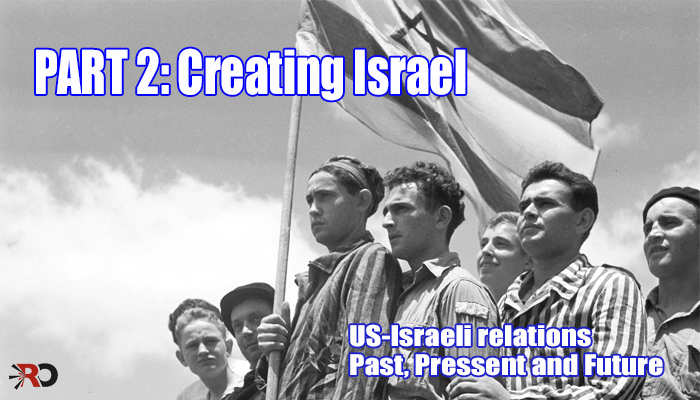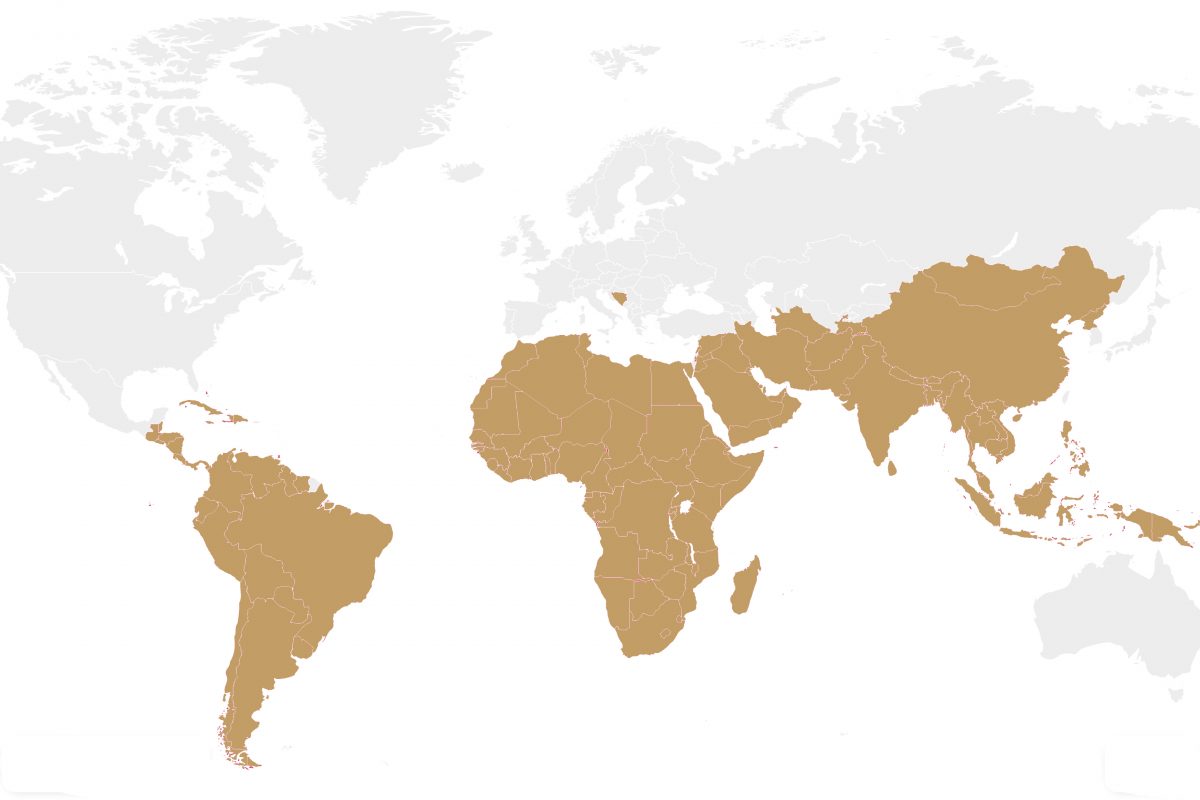In this second part of RO’s five part series looking at US-Israeli relations: Past, present and future, the creation of Israel and its relations with Britain is analysed
Following World War II it was clear America was the new superpower in the western hemisphere. Consequently, Britain changed its approach to maintain its interests. Its new plan was to be America’s closest and best friend, such that Britain could influence America (whom she considered to be “inexperienced” in the international arena) and through British advice America could be brought to effectively support the British interests around the world. [1]
As far as the Middle East was concerned, Britain was still in control through its influence over the local rulers. Since massive amounts of oil had been discovered in the Middle East, Britain focused on settling the dispute in Palestine between the Zionists and Arabs in a way that would both these parties linked to Britain. As per the recommendation of the Peel Committee Britain wanted to split Palestine between Jewish and an Arab state, but in a way that wouldn’t alienate either party from Britain.
So Britain decided to limit Jewish emigration from Europe to Palestine, such that the power and influence of the Zionist movement could be contained and it would remain dependent on British support. At the same time, it wanted to create a situation of chaos in Palestine that would facilitate establishment of a Jewish state by the Zionists. But, in a way that would not make the Arabs upset with Britain. [2]
Consequently, on the 2nd of April 1947 Britain requested the United Nations to establish a United Nations Special Committee for Palestine (UNSCP) to study and advise on the future of Palestine. On the 3rd of September 1947 the UNSCP recommended a partitioning of Palestine into a Jewish state and an Arab state, as the British had wanted ever since Lord Peel’s study.
For obvious reasons the Arabs were not happy with this recommendation as it would legitimize the Zionists’ expulsion of Arabs from cities and villages in Palestine. Using the Arab sentiment as a justification, Britain then declared that it could support UNSCP recommendations that were not supported by all sides in the conflict. It formally declared it would no longer cooperate with the UNSCP announced a withdrawal of its troops from the area. [3]
On the 14th of May 1948 the last British soldiers left Palestine, giving the Zionists the opportunity to declare establishment of their Jewish state of Israel. The British trained, equipped and lead army of Trans-Jordan then went into the areas, followed by small contingents of troops from Egypt, Syria and Lebanon. [4] Not to liberate Palestine and expel the Zionists, however, but to cement Zionist control over those parts of Palestine that the UNSCP, following the Peel Committee advice, recommended be given to them. In 1947, already, King Abdullah of Trans-Jordan had already agreed this with the Zionists leaders. [5] Consequently, the British commanders of Trans-Jordan’s Arab Legion operated under instructions to bring under their control the areas of Palestine that the UNSCP had assigned to the Arabs, such that no hostilities could be launched from there against the Zionists, and to not proceed any further into Palestine. [6]
Following all this Britain then organized formal ceasefires – armistices – between Israel and the Arab countries Transjordan, Egypt, Syria and Lebanon. [7]
In part 3, America’s emergence as the global superpower after WW2 and its impact upon Israel will be analysed
Part 1 – Israel’s origins
[1] “British Interests in the Korean War (1950-53)”, Major Seow Hwye Min, www.mindef.gov.sg/safti/pointer/back/journals/1999/Vol25_3/4.htm
[2] “The Secret 1947-1948 War Between the British and French Intelligence Services Over The Birth of the State of Israel”, Haaretz, 16 September 2014, via www.matthewaid.com/post/97641384171/the-secret-1947-1948-war-between-the-british-and; en “Uncovered: U.K. intel encouraged Arab armies to invade Israel in 1948”, Haaretz, 14 September 2014, via http://proteinwisdom.com/?p=55085; and “The French Connection”, Haaretz, 26 June 2008, www.haaretz.com/the-french-connection-1.248616; and “Britain’s treachery, France’s revenge”, Haaretz, 1 February 2008, via www.politicsforum.org/forum/viewtopic.php?t=87416
[3] https://en.wikipedia.org/wiki/United_Nations_Special_Committee_on_Palestine
[4] https://en.wikipedia.org/wiki/Arab_Legion
[5] https://en.wikipedia.org/wiki/Abdullah_I_of_Jordan
[6] “How the stood militarily: The Arab States on the eve of the 1948 War”, Times of Israel, 1 February 2015, http://blogs.timesofisrael.com/how-they-stood-militarily-the-arab-states-on-the-eve-of-the-1948-war/
[7] “Milestones: 1945 – 1952”, US Department of State: Office of the Historian, http://history.state.gov/milestones/1945-1952/arab-israeli-war





